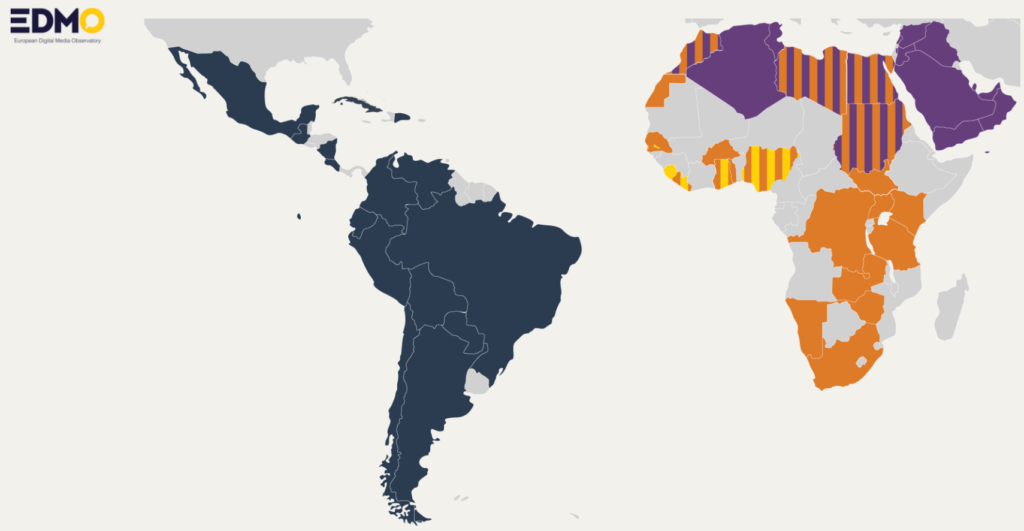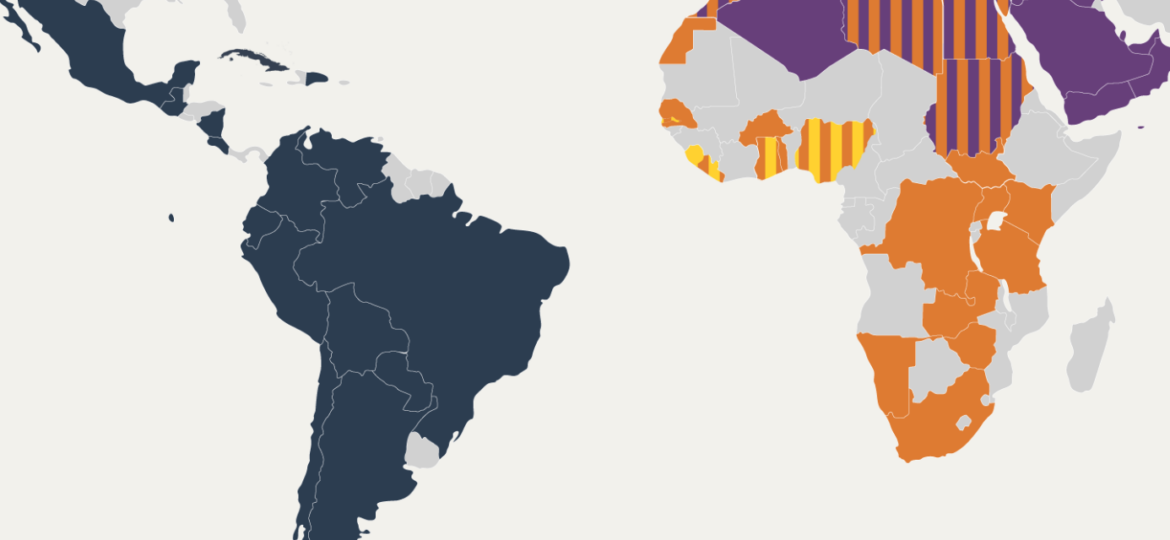Our world is in dire need of unity. The current and future main challenges for humanity – such as pandemics, wars and climate change – prove beyond doubt that common challenges require common answers. In order to have “common”, and possibly “right”, answers it is fundamental to have a clear understanding of the situation. Knowing facts, in other words, is now more important than ever to lay the foundations for global answers to global challenges.
The European Union showed an unprecedented degree of unity in the face of recent crises, such as during the vaccination campaign or in front of the Russian aggression against Ukraine. But the EU also saw recently an unprecedented effort to join forces in order to better counter disinformation: in 2022, the strengthened Code of Practice on Disinformation was signed between online platforms, representatives from the advertising industry, fact-checkers, research and civil society organisations; the European Fact Checking Standard Network (EFCSN) was launched – among other reasons – to guarantee the trustworthiness of European fact-checking organizations and guard against self-declared “fact-checkers” that are actually propagandists and disinformers; the European Digital Media Observatory (EDMO) has created, among others, a close-knit network of fact-checking organizations spread all over the European Union, plus Norway. Thanks to this network it was possible for the first time to monitor, analyze and counter disinformation at the European level and not only at the national one.
Now it is necessary to go beyond the borders of the EU and seek cooperation with other networks of fact-checking organizations based in other continents. In order to do so, EDMO contacted four different networks of fact-checking organizations, in particular (and for now) in Africa, Middle East and South/Central America: Africa Check, FactSpace West Africa, the Arab Fact-Checkers Network (AFCN) and Latam Chequea. After informal exchanges of ideas, a survey was sent out to these networks to gather information useful to foster future cooperation.
Main results of the survey
These networks together gather more than 160 organizations, of whom 30 are signatories of the Code of principles of the International Fact-Checking Network (IFCN), a list of standards and best practices that fact-checking organizations need to adhere to in order to become signatories.
| Network | N.Organizations | N.IFCN signatories |
|---|---|---|
| AFCN | 35 | 0 |
| Africa Check | 37 | 9 |
| FactSpace West Africa | 51 | 1 |
| Latam Chequea | 38 | 20 |
The majority of these organizations, in particular in Africa, are medium (6-15 employees) or small (1-5 employees). The four networks cover more than 50 States and more than 30 languages in Africa, Middle East and South/Central America.

All four networks have the ability to gather information (quantitative and qualitative) from their member organizations about detected disinformation and misinformation. This capacity is fundamental for sustaining the monitoring and the analysis of mis- and disinformation.
The main challenges about gathering information highlighted by the four networks are largely similar: it is time consuming, resources are needed for translation, standardization of the data and analysis. In Africa there are also more general issues of lack of data and obstruction by officials.
If these obstacles can be overcome, all four networks expressed their strong interest in a structured cooperation with other networks of independent fact-checkers from different continents. Aside from the already mentioned interest for monitoring mis- and disinformation, in the surveyed fact-checking networks there is much appetite for joint initiatives in the fields of content production (briefs, reports, investigations and so on), media literacy, research, training and more. Also, in general, common initiatives could be beneficial for the networks in terms of relations with the social media platforms. These relations need to be drastically improved, if not created from scratch.
Topics that could be the object of joint initiatives are already abundant. The four networks highlighted in the survey that in the past year they detected cross-continental cases of mis- and disinformation about the war in Ukraine, the Covid pandemic, migration and climate change.
Considering the already troubling impact of disinformation on public opinions all over the world, and in particular in the Global South, and considering the positive impact in Europe of projects that unified different fact-checking organizations based in different countries, acting swiftly and effectively should be a priority. The nightmarish perspectives about the impact of AI-generated disinfo (both textual and visual), – especially in countries with low levels of media literacy and lacking strong actors on the ground with sufficient resources to counter huge volumes of disinformation – aggravate the urgency of starting the work on possible solutions.
The “EDMO way”
A possible solution to foster a potential cooperation between different continental networks of independent fact-checking organizations that can be implemented in relatively short time, and with a reasonable amount of resources, is to replicate some of the EDMO’s fact-checking network processes.
For example, in order to monitor on a regular basis the spread of mis- and disinformation it is possible to draft together a common questionnaire, shared among the organizations of the different networks, to gather information. Then this information gets analyzed centrally (maybe by a unit that brings together the relevant experts of the different networks involved) and periodic reports/briefs – like the ones published by EDMO, but maybe on a trimestral basis – could be produced.
Building on these reports’ findings, it will be also possible to conduct cooperative investigations (again similar to the work currently facilitated by EDMO), and in this regard the possibilities are fascinating.
Just to provide an example, it would be interesting, and useful, to understand how pro-Russia disinformation (about the war in Ukraine, but also more in general) is declined differently in countries that Moscow considers enemies, neutral or potential allies; as well as which are the topics and narratives exploited differently from country to country.
It is also possible to imagine joint investigations on migration: e.g. comparing false news that circulate in the countries of origin of the migration flows, the ones that are viral in countries of transit and finally the ones that are spread in the countries of destination. General public, decision-makers, but also NGOs and CSOs could greatly benefit from analysis of such kind.
In conclusion
In the past two years EDMO built a strong network of fact-checking organizations in the EU that can monitor and counter disinformation effectively on a continental level. This helped significantly during the recent crisis, like the Covid-19 pandemic and the war in Ukraine. But the world is much larger than the EU and more interconnected than ever. It is necessary to go beyond the borders of Europe and build structured cooperation with independent fact-checking organizations all over the world, and in particular in the Global South.
EDMO surveyed four networks of fact-checking organizations based in Africa, Middle East and South America. The results are very much encouraging: the necessary basic infrastructure is already largely present on the ground, there is a strong interest for such cooperation, obstacles that obviously exist are not insurmountable, and the EDMO’s fact-checking network processes that worked well in Europe can be replicated, with few adjustments, on a larger scale. With adequate resources, building and implementing the cooperation between different continental networks of fact-checking organizations could happen within a relatively short time frame.
Tommaso Canetta
Coordinator of EDMO’s fact-checking activities
Deputy director of Pagella Politica and Facta news
Photo: Pagella Politica
